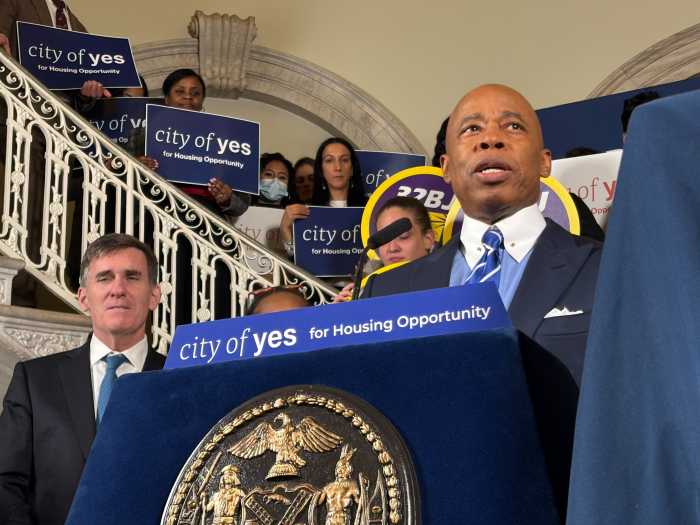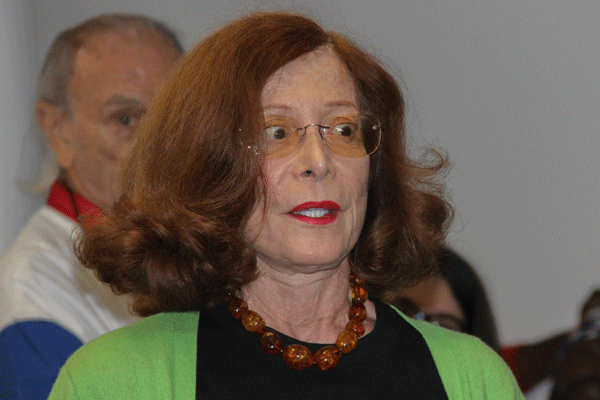
BY ALBERT AMATEAU | Music in Washington Square Park, long a cherished tradition in Greenwich Village (a neighborhood full of traditions), was the focus of a meeting last week packed with neighborhood residents and many of the people who play music in the park.
No one wanted to stop the music. The issue was how loud it should be and how to keep a reasonable noise level. There were questions about rules — hours and decibel levels. And there were calls for enforcement.
“The number one complaint at Community Board 2 is noise, and most of the complaints come from park neighbors and park users,” said Tobi Bergman, chairperson of C.B. 2. “I don’t like noise, but when I was 40 years younger I did like it — and added to it,” Bergman said.
The June 3 meeting of the board’s Parks Committee was intended “to hear what people had to say and to help find a solution,” Bergman added.
“The rules are not enforced,” declared a woman resident of 2 Fifth Ave. just north of the park. “We can’t live in our own homes.”
It was a complaint often repeated at the two-hour meeting.
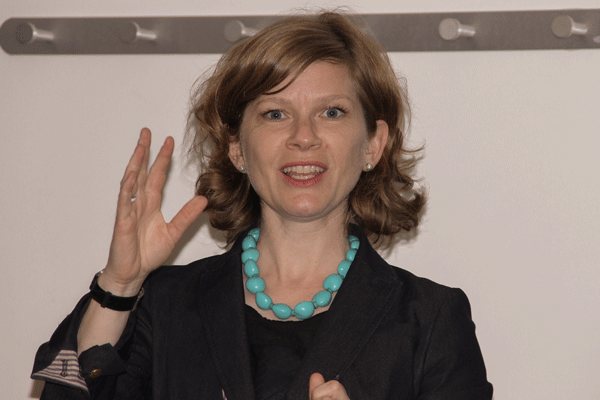
A rare occasion when a phone call to the Parks Department did bring results involved a woman who played four notes on an amplified keyboard for 10 hours, according to another neighbor.
Sarah Neilson, the Washington Square Park administrator, said that rules prohibit music after 10 p.m. Amplified music requires a permit. As for measuring loudness, however, neither police officers nor Parks Enforcement Patrol officers are equipped with decibel meters.
However, William Castro, the Manhattan borough commissioner for Parks, promised that the department would provide the six-officer Washington Square PEP team with a decibel meter in the near future.
Castro suggested that complaints about noise levels should be made to the city’s 311 central complaint line, as a matter of record. He said that once the record is established, the department would focus on the problem.
Responding to repeated charges that PEP officers ignore complaints about excessive noise, Castro said, “I take what you’re saying seriously and I’ll take the matter up with the PEP supervisor today.”
Musicians, as well as neighbors, said that drummers were the worst offenders, playing so loud that they overwhelmed other music makers. Indeed, Castro said that on one occasion he could hear drumming that dominated the park from its southeast to northwest corners.
“Tic and Tac show up every day and break every rule,” said David Heller, a frequent park visitor. “If you enforce against them, it would resolve the problem.”
A musician who plays trumpet in the park for an hour a day said that he tried to talk to Tic and Tac.
“But they don’t listen,” he said, adding, “They play very, very loud. There has to be some enforcement, some guidelines.”
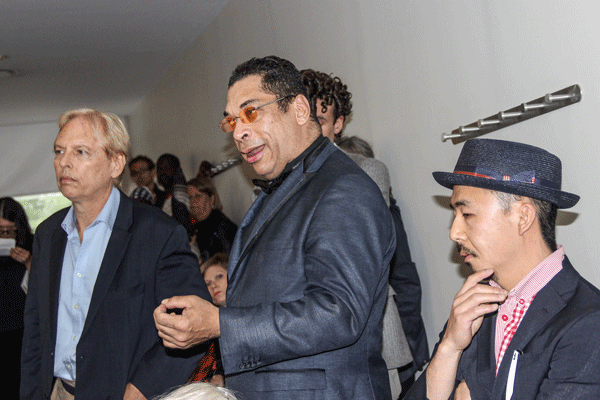
Richard Howard, who said his jazz band has been playing in the park for 23 years, called the two performers “renegade rogue musicians who don’t respect anyone else.”
A folk musician said, “We’re trying to keep the folk tradition alive, but we are being forced out of the park. There has to be some way to control the noise.”
Another folk musician complained that Tic and Tac overtly solicit money from their audience, in violation of park rules. Merely leaving a hat for donations is allowed, he said.
Tic and Tac, the twin brothers who were the targets of the complaints, also attended the meeting. Tac (Tyheem Barnes), said, “We’ve always found a way to get along with each other.” He spoke against “selective policing” that would target him and his brother. “Drumming is a black and Hispanic thing,” he added, implying that cultural bias was their critics’ motivation. The remark provoked shouts of derision.
After the meeting, Tic and Tac told The Villager that their performance, which features tumbling and acrobatics, was mostly a comedy act.
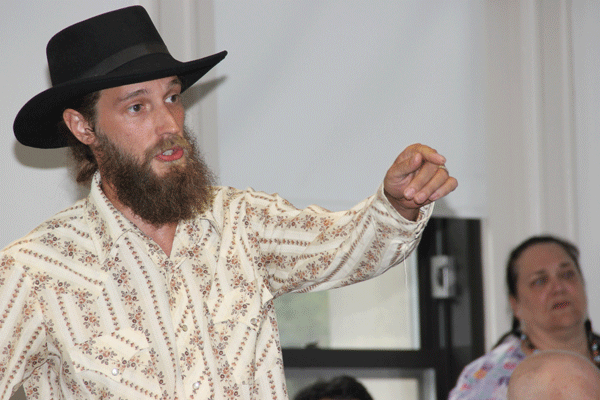
“We only play two days a week,” said Tic (Kareem Barnes).
The brothers were not without supporters. One of their fans said, “People come from all over to hear them.”
A suggestion that there should be a noise-free zone in the park was dismissed as impractical.
“A noise-free zone won’t work in this park,” said Castro. The 9.75-acre park is a mostly flat space, so the sound carries, he noted. Furthermore, he added, unamplified music becomes acoustically amplified when it is played under the Washington Square Arch.
Writer David Carter — author of “Stonewall: The Riots That Sparked the Gay Revolution” (2004) — said he’d like the whole park to be a quiet zone.
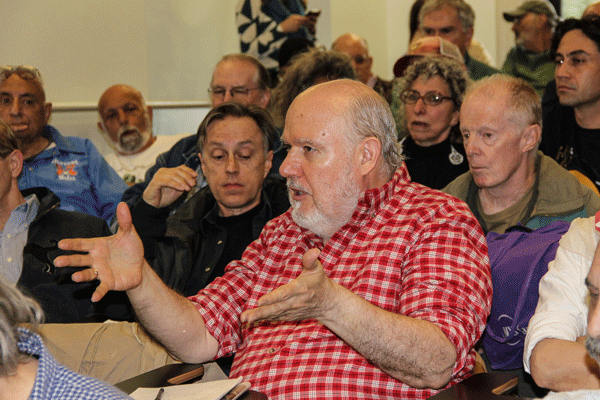
“I come to the park for peace and quiet, to get closer to nature,” he said. “What about my right to silence?”
Gil Horowitz, a park neighbor, told Castro, “The bangers and blasters ruin things for everyone. We need your help and we’ll do whatever it takes to make it happen.”





